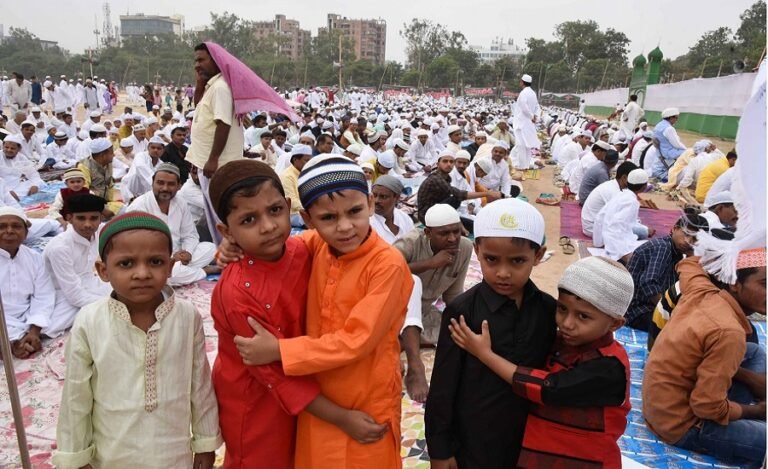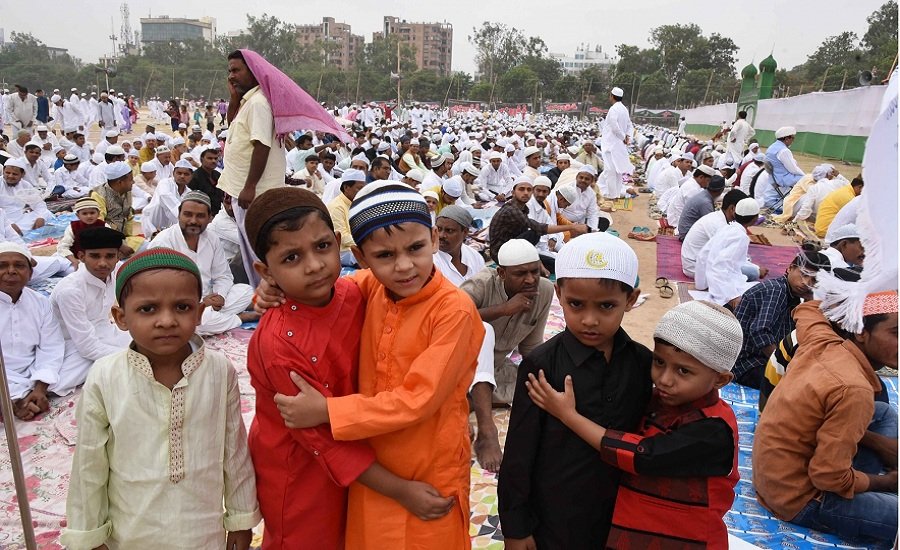

NEW DELHI – The ongoing COVID-19 pandemic has taken away the sheen from the markets in India ahead of Eid-al-Adha festival as people usually prefer staying indoors and avoid going outside to make purchases.
The pandemic has brought a major change in people’s lifestyle, especially on the occasions of festivals and celebrations despite the country will be celebrating Eid-al-Adha (locally called Bakrid) on Aug. 1.
Ahead of the festival Muslim shoppers used to throng markets to purchase foodstuffs like bakery, sweets and confectionary, besides new clothes. One of the major attraction of this festival is the purchase of sacrificial animals like sheep, goat, etc.
However, this year the shopping spree has been marred by the pandemic and subsequent lockdowns that saw closure of shops, suspension of vehicular traffic movement and prohibition of gathering at open markets selling sacrificial animals.
Eid-al-Adha, the biggest Muslim festival also known as the festival of sacrifice, is celebrated across the world on the 10th day of Dhul-Hijjah, the last month of the Islamic year.
Muslims follow the lunar calendar, according to which months are either of 29 or 30 days in duration.
“Markets used to witness an unusual rush of shoppers ahead of Eid-al-Adha. In the past street vendors used to encroach pavements meant for pedestrians to erect makeshift stalls to sell different items including eatables, bakeries, toys, snacks, clothes, etc.,” said Izhar Umaid Dar, a resident in Srinagar.
.
“But today because of the threat of COVID-19 pandemic, no crowd is witnessed. Shops selling sweets, bakery, confectionary and clothes are presenting a deserted look.”
Authorities in Srinagar on Wednesday permitted the opening of shops partially after over a week of complete lockdown to allow people to make essential purchases ahead of the festival.
“We have opened up shops but there are no shoppers,” Mohammed Abbas, owner of a bakery shop in Srinagar said.
Economists say the pandemic has inflicted economic losses on people as the majority of people have lost their jobs. With no work available the pandemic apart from impacting health has drastically hit the income of people.
“What will people spend? It is over four months that the economy is in shambles,” argues Syed Hussain, an economist. “Shopkeepers were unable to open shops, public transport remained off the roads and economic activities suffered a huge blow. With no income available, of course, it will get reflected on the occasion of festivals, when people used to spend lavishly.”
The shopkeepers who have opened shops are wearing face masks and have kept hand sanitizers handy. Even arrangements to maintain social distancing have been kept.
Meanwhile, dealers selling sacrificial animals including goats and sheep say there were hardly any customers.
“First, because of restrictions we are unable to move our herd of sheep. and second, people are not readily buying the sacrificial animals,” said Mushtaq Ahmad Ganai, a butcher. “COVID-19 has left no enthusiasm in the people to make purchases.”
In normal circumstances, Eid starts by gathering at a mosque or at prayer grounds. To celebrate the festival people used to visit each other and exchange pleasantries by hugging or shaking hands. Muslim families gather with friends and relatives and often share meals.
Authorities in India fearing the spread of COVID-19 infection are encouraging Muslims to take precautions and change the way they have been observing the festival in wake of the pandemic.
The local government in the northern Indian state of Uttar Pradesh has required no congregation on streets and at mosques. Authorities say section 144 (government order prohibiting gathering of more than four people in a public place) will remain in force at the mosques and other religious places.
Meanwhile, prominent Muslim organisations in India have issued advisories on social distancing and animal sacrifice amid the ongoing pandemic.
Muslims form 14 percent of India’s 1.3 billion population.
So far India has recorded 1,531,669 cases of COVID-19 including 34,193 deaths. Globally India is the third worst-hit country due to the pandemic.
–Xinhua